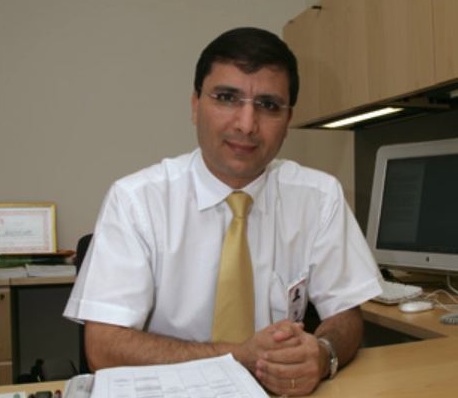Professor Speaks at World Economic Forum on the Middle East
June 2009

Dr. Chouchane contributed as a panelist on a discussion on privatizing
science in the Middle East.
Lotfi Chouchane, PhD, DSc, professor of genetic medicine, immunology and microbiology at WCMC-Q, was one of 20 scientists from around the world invited to Jordan for the World Economic Forum on the Middle East for a discussion among members of the scientific community and decision makers. Their aim was to develop a forward-looking agenda for science, and Dr. Chouchane contributed as a panelist on a discussion on privatizing science in the Middle East.
The forum specifically sought a discussion on ways to build a robust research culture in the Middle East in light of the fact that the Arab world’s 200 universities have almost negligible links with business, are largely state owned and spend only around one percent of their budgets on research compared to an international average of 35 percent.
Chouchane said during his discussion that non-profit colleges like WCMC-Q are less burdened by bureaucracy than regional public universities. He said they are also more progressive than “business-type” universities, which “pop up like mushrooms” throughout the middle-income MENA states but tend to be limited visions of a single, local business investors. With the merging of experienced, non-profit educational institutions and local funders who trust their wider vision, more flexible and innovative curricula is likely to result, Chouchane said.
“Business-type universities are not the solution for overcoming the challenges facing higher education in the MENA region, but non-profit universities combined with the business sector could be the solution.”
Chouchane also addressed the idea of “brain drain”— when people leave their homeland to obtain education abroad and never return to apply their skills—and ways MENA regions can prevent this. He also discussed the problematic gap between basic and applied science in the MENA region. Students are prepared in the region’s high schools to work in basic science, but when it comes to innovation and the mindset required to move discoveries into public use, they are coming up short.
“First of all, we are talking about investing in science, from basic science to its application. And there is a gap between them. The gap is due to lack of venture capital in the MENA region, and researchers who tend to be geared toward academia and basic research. They are not trained to move the knowledge of a finding to its application, which involves more of a business mentality,” Chouchane said.
Investment at high-school level is critical to preventing brain drain, Chouchane explained. Some areas of the MENA region are lacking in their human capacity building but have funding, while others are lacking in financial resources but have well-educated population. He sees the solution for the MENA region in a combination of progressive secondary education—non-profit, time-tested institutions coming in from abroad—and local, venture funding.
“Because the non-profit sector doesn’t have the bureaucracy of the public institutions, it can avoid some of their constraints. The result would be more progressive, leading to innovation and the translation of basic knowledge,” Dr. Chouchane said.
This year’s World Economic Forum on the Middle East involved over 1400 leaders from industry, government and civil society from the Middle East and around the world. Joining Dr. Chouchane on the scientific panel were Patrick Aebischer, president of Ecole Polytechnique Federale de Lausanne, an educational institute in Switzerland that combines education, research and technology; Brian Baird, a democrat congressman from the state of Washington, U.S.; Harold Kroto, Francis Eppes professor at Florida State University, U.S., and Nobel Prize laureate in chemistry, and Ennis Rimawi, managing partner of Catalyst Private Equity-Cleantech Fund, which specializes in oil, water and gas venture capital in Jordan. Steven Clarke, executive producer, Reuters Television, U.K, moderated the session.
Reported by Emily Alp
